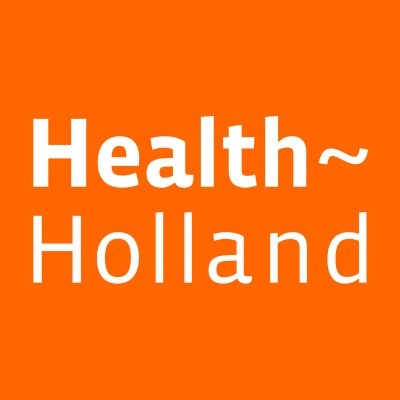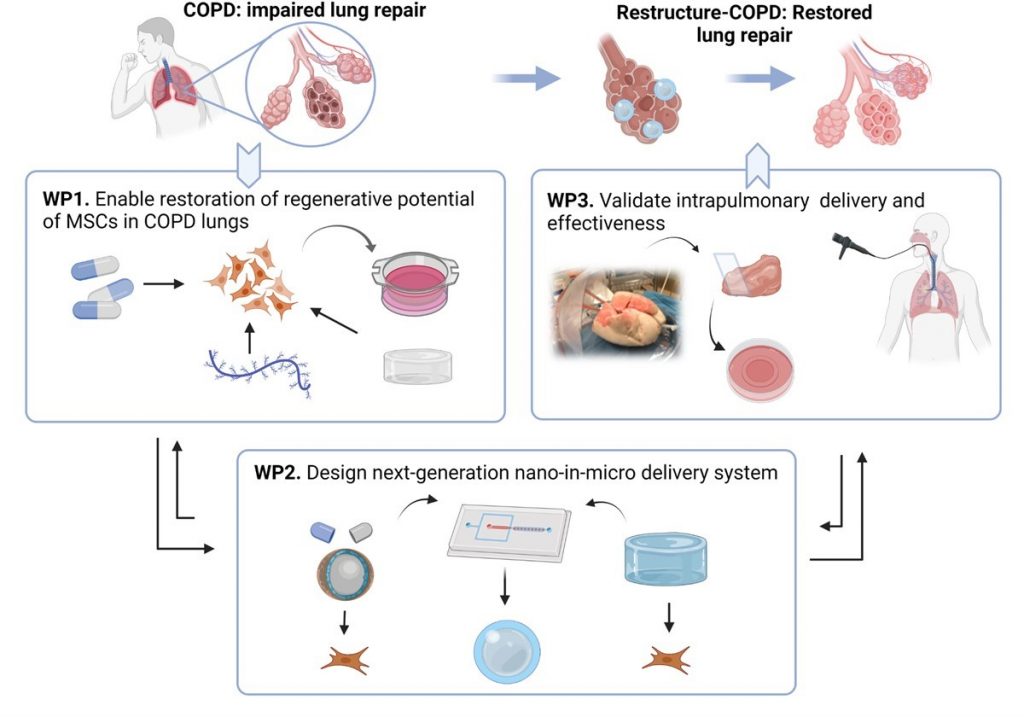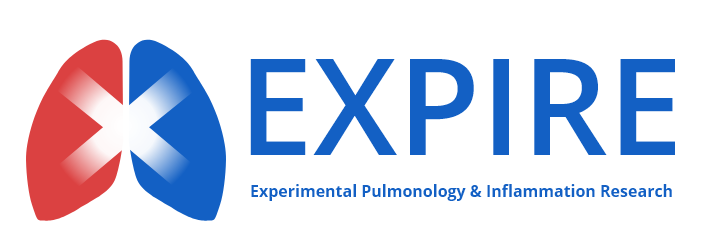

COPD is characterized by irreversible lung damage, leading to progressive loss of lung function. Novel regenerative treatments are urgently needed. Human lungs contain stem cells capable of tissue regeneration that reside in their local microenvironment (niche), composed of stromal cells and extracellular matrix. Mesenchymal stromal/stem cells (MSCs) are a key stromal element, supporting alveolar regeneration via paracrine mechanisms. Accumulating evidence indicates that interactions in the COPD microenvironment are disturbed, impeding adequate lung tissue repair. Importantly, we recently observed that MSCs from COPD lungs are compromised in the secretion of critical regenerative factors. We propose that restoring the interaction between MSCs and the microenvironment will reintroduce MSC’s regenerative factors (e.g. HGF, FGF10, exosomes), driving repair of damaged lung tissue.
We hypothesize that controlled and local delivery of lacking components will augment the regenerative efficacy of native MSCs in COPD lungs.
We will achieve this via endobronchial administration of an innovative technology of nanoparticles in micrometer-thin hydrogels (nano-in-microgels) to effectively deliver these critical factors to the alveoli, allow their controlled release over time and restore lung-resident MSC’s regenerative function.
We will produce nanoparticle-laden microgels with variable stiffness and composition, and evaluate effects on viability, metabolic activity and trophic mediation ofMSCs in vitro as well as their interaction with decellullarized COPD lung tissue. Regenerative compounds have been selected based on our recently concluded Longfonds project, and can be updated by findings from our ongoing large consortium project P4O2 (precision medicine for more oxygen) and international consortia in this field. These factors will be laden into in-house available nanoparticles. Their effectiveness will be studied using our recently developed lung organoid models, recapitulating critical aspects of alveolar regeneration. Local delivery will be assessed by determining the microgel’s biodistribution and its action in ex vivo models, including ovine lungs and human precision-cut lung slices.

Academic partners:
University Medical Center Groningen (The Netherlands), Departments of Pathology & Medical Biology, Pulmonary diseases and Thoracic Surgery: Prof. Irene Heijink, Prof. Janette Burgess, Prof. Dirk-Jan Slebos, Dr. Michiel Erasmus.
In collaboration with University Twente, Departments of Developmental BioEngineering and Engineered Therapeutics: Dr. Jeroen Leijten, Prof. Jai Prakash
Private partner:
Rousselot Biomedical
